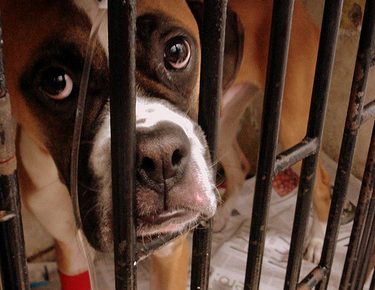Botulism is a type of bacterium. There are 5 different types, the most common being Colustridium botulimae. It is a nerve toxin and all forms cause paralysis.
Generally pets can be affected by eating dead animal carcasses, sometimes raw and/or spoiled foods, decayed vegetable matter.
Symptoms begin with weakness in the hind legs which then rises to the trunk, front legs and neck. Weakness becomes more severe, there may be chewing and swallowing difficulty, drooling, abdominal pain. Paralysis of all 4 legs occurs within 12-24 hours after initial weakness. Pets affected mildly usually recover within several days. However if paralysis affects breathing it can lead to death.
Your veterinarian will ask for a complete health history including initial symptoms and if or what the pet ingested before their onset.
Diagnosis includes a CBC, chemical blood profile, urinalysis, fecal and/or vomit sample. The lungs and upper gastrointestinal tract will undergo x-ray to check if paralysis is present.
If reaction is mild, the pet may require intravenous feeding and urinary catheter at the hospital. A more severe case, when difficulty breathing is involved, will need to be monitored in the ICU (intensive care unit) with a stomach tube for feeding and a ventilator hookup to assist breathing. In either case, type C antitoxin will be administered to neutralize the botulism toxin and prevent it from progressing.
Prevention is the best treatment. When out with your pet, make sure s/he doesn’t eat anything on the ground, especially dead animals. You may want to teach your pet a command to drop whatever is in his/her mouth. If you have a garden or live in rural areas, check your property regularly for any animal carcasses. If you find a dead animal, wear gloves, use a shovel or some tool to lift it, wrap it well and place it in a secure trash can so other animals cannot reach it. Include a probiotic and digestive enzymes in your pet’s diet to balance gut flora.
The good news is that your pet’s stomach is highly acidic and can usually handle higher doses of bad bacteria than humans. And botulism poisoning is rare, especially in cats.



